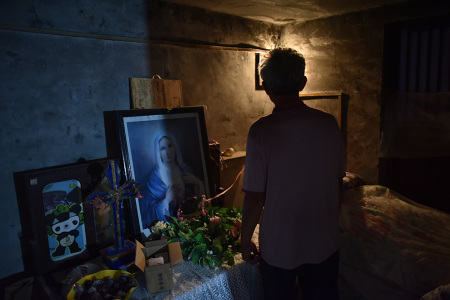China: Police raid Early Rain Covenant Church gathering, detain youth leader for interrogations

Police raided the home of a youth leader associated with the heavily persecuted Early Rain Covenant Church while he was hosting a gathering for youth just days ago and detained him for interrogations, according to a report.
Chengdu-based ERCC’s leader, identified as Bro. Xiao Luobiao, was taken away to a police station for interrogation on Thursday morning and released about four hours later, the U.S.-based persecution watchdog International Christian Concern reported.
“Thanks be to God! I have already gotten out safely. This time was lighter than previous times [of arrest], I gave a statement and left around 2 p.m. by myself,” the house church youth leader was quoted as saying.
Last October, Xiao was taken away by Wuhou district’s Red Archway Police Station for “illegal proselytization.”
He has been sporadically harassed by authorities ever since the crackdown on ERCC began on Dec. 9, 2018.
Speaking to The Christian Post earlier, an ERCC member, Ren Ruiting, shared her experience during the crackdown.
“I started getting messages that police were arresting our church leaders and taking members from their homes,” she recalled.
“I heard that our pastor, Wang Yi, and his wife had been detained, and I started to get worried,” said Ren, who was 22 years old at the time. “I was talking to my friend, and suddenly she went silent. It was a horrible thing. One second someone would be talking to you, and then they would disappear. You don’t know where they went, because they are taken away by the policeman. And that made me feel a little afraid.”
Ren, who had attended the church’s seminary and knew the police had her name, feared she was next.
“The night was very, very cold,” she said. “I gathered a water bottle, some clothes and some money, and I traveled to a friend’s house.”
While hiding at her friend’s house, Ren attempted to text her family and friends but discovered her WeChat app was no longer working. The police began calling her, prompting her to remove the SIM card from her phone.
“We could no longer connect with each other; all I got was a message saying my WeChat was illegal,” she said. “I didn’t know what happened to my friends, and they didn’t know what happened to me. We all felt independent and isolated. We were not a big group, we were taken away one person at a time. At that time, I felt really afraid.”
“I felt I should disappear and never let them find me because if they find me, maybe they will send me to prison or beat me. I don’t know. I’m just afraid.”
Open Doors USA, which monitors the persecution of Christians in over 60 countries, estimates that China has more than 97 million Christians, many of whom worship in unregistered or so-called “illegal” underground churches.
The five state-sanctioned religious groups in China are the Buddhist Association of China, the Chinese Taoist Association, the Islamic Association of China, the Protestant Three-Self Patriotic Movement and the Chinese Patriotic Catholic Association.
Even the organizations within the five authorized religions are subject to surveillance and limitations, Bitter Winter reported.
In 2018, the Chinese government banned the sale of Bibles at online bookstores across the country to comply with a “white paper” that dictated compliance with the “core values of socialism.”
ABC News Australia reported at the time that copies of the Gospels had been removed from online retailers following the release of a regime document titled, “China’s Policies and Practices on Protecting Freedom of Religious Belief.”
The white paper declared that Chinese faith communities “should adhere to the direction of localizing the religion, practice the core values of socialism, develop and expand the fine Chinese tradition and actively explore the religious thought which accords with China’s national circumstances.”





















